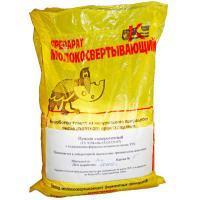Companies warned of rising transport costs in Russia
Two weeks after the start of Russia's special military operation in Ukraine, logistics and freight companies began to withdraw from the market, form new supply chains and prepare for higher freight rates.
“We expect a reorientation of logistics routes and supply chains, as well as an increase in the cost of imported goods for the end consumer by attracting additional intermediaries - residents of friendly countries,” Bogdan Antonenko, Chairman of the Board of the United Association of Carriers (it includes more than 20 transportation companies, predominantly regional).
What happened to the logistics
By the beginning of March, the conditions of work in Russia were revised by key players in the international logistics market. For example, the world's largest container operator Maersk temporarily stopped accepting applications for the transportation of medical and humanitarian cargo, as well as food to St. Petersburg, Kaliningrad and Novorossiysk and vice versa. But this decision will not affect the Far East, the company's press service specified. The leading European port of Hamburg also refused to process goods from or to Russia (with the exception of food and medicine). “The stevedores in our port, all other European ports and shipping companies are responding to the EU sanctions [against Russia in response to a special operation in Ukraine],” a representative of this port explained to RBC.
Maersk has stopped accepting applications for the transportation of food to St. Petersburg Business
Sea lines MSC, Hapag-Lloyd and Yang Ming also suspended the booking of ships (bookings) in the direction of Russia, Vadim Filatov, deputy DIRECTOR of the PEK transport company, told RBC through a representative. And the sea lines HMM and One have limited the acceptance of bookings to the ports of Novorossiysk and St. Petersburg, he said.
What are the restrictions faced by carriers?
After the start of the special operation in Ukraine, transport companies faced restrictions from both the West and Russia. On February 27, the European Union banned the flights of aircraft of Russian companies, followed by similar bans imposed by the United States and other countries. Western airlines also cannot fly to or through Russia. The UK has banned Russian-flagged ships from entering its ports.
For more than two weeks, shipping has been banned in the Sea of Azov, where mainly grain, coal and oil products were reloaded, recalls Vitaly Chernov, HEAD of the analytics department of the PortNews media group. Russian Railways stopped sending goods in all directions to Ukraine.
Read on RBC Pro Why it is better to lay off employees in a crisis, rather than reduce salaries for everyone Philosopher in IT:how to find a promising junior and help him open up Will cryptocurrencies hide Russian capital from sanctions What to do with dollars and foreign shares: analysts' opinionsanalyst opinionsanalyst opinionsNow the Global Ports terminals (they handle almost every third container imported and exported from Russia), co-owned by Maersk and the Delo group of Sergey Shishkarev, serve ships in accordance with confirmed ship calls. But at the northwestern terminals of the company there is a temporary restriction on the acceptance of EXPORT containers, the company specified. This is done in order to avoid overstocking of warehouses against the backdrop of a slowdown in the processing of Russian cargo in European hubs.
The container market is a large organism, where one logistical shoulder clings to another, notes Alexander Baskakov, director of the RTSB-RUS logistics operator: “With such serious changes, the market can change dramatically.”
See also EU extended economic sanctions against Russia 01:55
How supply chains have changed
The current supply chains have been destroyed, there are practically no alternatives for servicing import and export flows, says Denis Chesnokov, director of the international development department of Pony Express. “All sea freight has stopped, there is no air traffic. Only Turkey, Armenia, Uzbekistan, Mongolia and Azerbaijan remain,” he notes. “Transit traffic through Ukraine has been completely stopped, and trains have been redirected to the Brest-Malashevichi border crossing,” adds Oleksandr Sivertsev, Executive Director for Multimodal Transportation at Rail Cargo Logistics-RUS.
PEC now delivers shipments from Europe by road, in transit through Lithuania. “Border crossings are functioning, but traffic jams remain. This can increase the delivery time of goods by one or two days,” Filatov said. According to him, as of March 11, Lithuanian international automobile checkpoints (MAPP) remain the busiest: 200 trucks have accumulated at the Kamenny Log-Medininkai border crossing between Belarus and Lithuania, and 290 trucks have accumulated at Privalka-Raigardas.
The European Union completely closed the sky for Russian aircraft Business
The current situation with the ban on flights to Europe has also affected cargo airlines. For example, the German DHL has suspended work with the Russian carrier Aviastar-TU, its representative says. But domestic transportation remained in full, “in standard mode” flights to CHINA are operated in the interests of the Russian Post, he says.
What threats did companies warn about?
Many problems in the logistics industry cannot be called new, such as queues at border crossings between Russia and the EU, Belarus and Europe, says Alexey Chinyakov, commercial director of the Trasko transport and logistics company. But against the background of the ongoing special operation in Ukraine and Western sanctions, the situation worsened. Among the main threats to business development, market participants identify the following.
Due to the suspension of airports in the south of Russia, cargo traffic had to be redirected to roads. “Delivery times have increased by three to four days to a number of destinations, due to the fact that auto routes are longer than flights,” says Filatov. The epidemiological situation continues to limit the capacity of border crossings with China. Of the 14 checkpoints, the Zabaikalsk-Manchuria checkpoint remains the busiest. As of March 11, 7234 trucks were registered in the electronic queue. The day before, March 10, 190 vehicles were passed through this checkpoint (for entry and exit). The introduction of sanctions against the Russian ports of Russia in the north-west and in the Black Sea basin, the refusal of ship calls to them from the side of large European sea lines can critically reduce the import of products, medicines and other essential goods transported in containers. This was announced on March 4 by the Eurasian Union of Participants in Rail Freight Transportation. Reducing the number of companies operating in the European direction by different modes of transport. Refusal of many drivers to transport goods by road from Europe. Difficulties with foreign exchange transactions and in settlements with foreign counterparties.11 airports in southern Russia have suspended work Business
In addition to the obvious political risks and the shrinking market for freight forwarders, President Vladimir Putin's decree on the mandatory sale of 80% of foreign exchange earnings has become a big threat, Baskakov adds. For example, if the container transportation price is $10,000 and the currency part of the costs is $7,000, the additional conversion costs for them will amount to $2.1 thousand. They don't have these problems," he said.
How will this affect the prices of goods and services?
“The cost of logistics services depends on many factors, including vehicle lease payments, employee salaries, current vehicle freight rates, fuel costs, and the overall market and economic situation,” Chinyakov explains.
Prices will grow in the same progression as the US DOLLAR, Chesnokov believes. In terms of rubles, the cost of logistics has already increased due to a jump in the exchange rate, Sivertsev points out. But, according to him, the tariffs for international transportation in foreign currency have not yet changed. At the rate of the Central Bank on March 11, the dollar was worth 120.38 rubles. This is almost 50% more than it was on February 23, the day before the start of the special operation in Ukraine.
Volodin urged not to raise prices for goods, "hiding behind sanctions" Society
Baskakov says that the increase in rates in dollar terms will also depend on the availability of containers and seats on trains after the market survives the first shock and comes to a new equilibrium. “The container market was already very overheated, and with the departure of such large players (for example, Maersk) and, accordingly, the capacity, rates can grow like an avalanche at first,” he believes. Oleg Urvan, CEO of the logistics company Nawinia, agrees that prices will rise due to a possible increase in the cost of freight. “[It] will have a big impact on cheap goods. For expensive goods, the cost will also increase, but not so critically,” he said.
Which transport will be the most popular
Against the backdrop of problems in road and air transport, carriers are trying to redirect cargo from abroad to the railroad. With the departure of most of the sea carriers, the railway becomes the main method of delivering goods from / to China and there will be nothing to compete with it, Baskakov is sure.
According to the IEC, the delivery time by an accelerated container train from China to Russia (to the Moscow Railway) is 40-50 days. The average delivery time by road is 45-55 days (depending on the capacity of the border crossing), adds Filatov. Rail routes have also become more in demand in transportation from Europe to Russia amid problems with vehicles, Sivertsev notes.
Russian Railways predicted a fourfold increase in container transit Business
Now Russian Railways is noticing a significant increase in applications for the transportation of goods in the eastern direction. “And this is not only coal, but also oil products, metals, fertilizers, grain,” the press service of the monopoly reported on March 9. The transportation of containerized cargo along the BAM and the Trans-Siberian Railway for March 1-8 increased by 23.5% compared to the same period in 2021. In general, container traffic in the Russian Railways network is growing by 9.1%, including transit - by 8%.
In the near future, the eastern direction, which has been overloaded for the past ten years, will experience even greater load, says Alexander Kochukov, an expert in the field of railway transport and logistics. “Exporters will have no choice but to ship to the east,” he notes. Despite this, according to the results of 2022, transportation is likely to decrease by at least 10% even in a positive scenario, says Mikhail Burmistrov, General Director of INFOLine-Analytics. According to a representative of Russian Railways, the monopoly is ready to "take adequate prompt measures to ensure the transportation of the entire volume of cargo, including those that previously did not gravitate to the railway." Over the past 15 days, Russian Railways has acquired more than 350 new customers, the company's press service noted, refusing to disclose its cargo transportation forecast for 2022. In 2021, loading on the Russian Railways network increased by 3.2%, to 1.3 billion tons. Its net profit under RAS amounted to 18.76 billion rubles.



























































